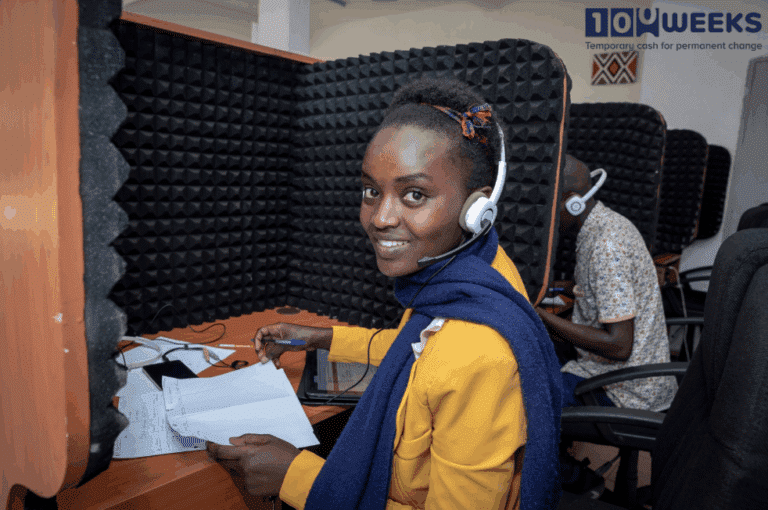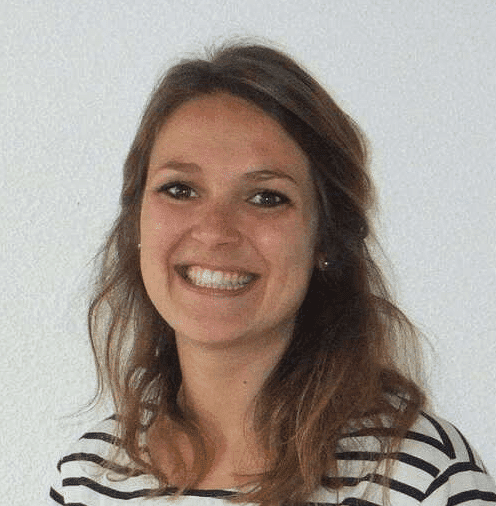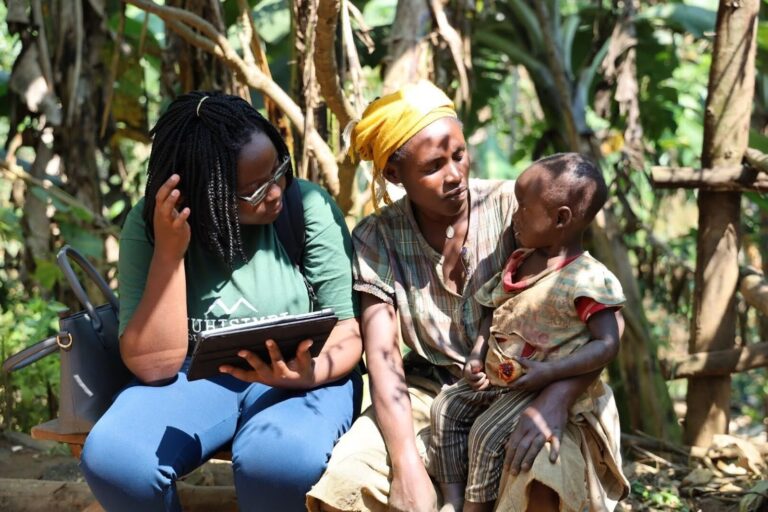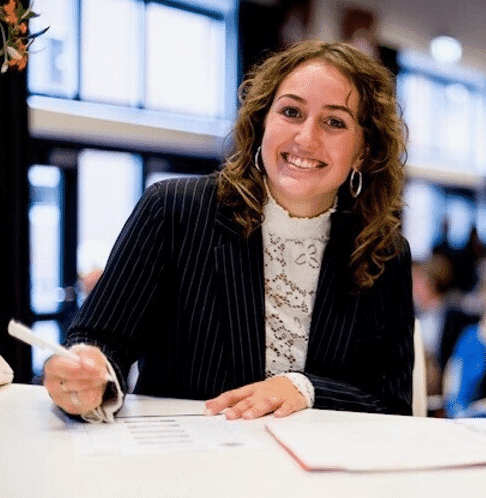How 100WEEKS showcases the power of combatting poverty through cash transfers with SurveyCTO


Meet 100WEEKS
100WEEKS is a Dutch organization lifting women out of poverty in a radical and direct way: By giving them money directly.
To effectively combat poverty in this way, 100WEEKS follows these three steps:
- Mobile payments: 100WEEKS delivers unconditional cash to women through mobile phones
- Entrepreneurial training: Every week they give a 100WEEKS training, following a curriculum that covers various topics like personal empowerment, life skills, and financial literacy.
- Saving groups: Participants come together for weekly savings groups using a system called Village Savings and Loan Association (VSLA) groups. During these meetings, participants get the chance to save part of their weekly cash for bigger investments in the future.
Founded by Jeroen de Lange (a former diplomat and World Bank economist) and Gitte Buch, 100WEEKS is widely credited with achieving significant and lasting impact for the women in their programs. Data shows that the positive impacts of these unconditional cash transfers last for years, even after the initial program has ended.
Office: Amsterdam, the Netherlands; operates in Rwanda, Ghana, Uganda, Kenya, and Ivory Coast
Sector: International development, humanitarian aid
Use case: Monitoring and evaluation
Features used: Surveys, case management, advanced offline functionality for offline case management
Website: https://www.100weeks.nl/
The Goal: Show the ability of direct, unconditional cash transfers (UCTs) to alleviate poverty
100WEEKS has a clear goal: Lift women—and by extension, their families and communities—out of poverty. They do this through temporary direct mobile cash transfers, empowering women to use donated funds in the way that they know will best pull them out of poverty and into financial freedom. In addition to these cash transfers, 100WEEKS also provides support to participants through an ongoing savings group as well as in-person, culturally-competent coaching in the form of job and entrepreneurship training.
For over ten years, lives in low-income countries have been transformed by this simple but effective strategy.
As part of this strategy for transforming the lives of people in poverty, 100WEEKS does monitoring and evaluation (M&E) through a series of baseline, midline, endline, and post-program surveys on program participants.
M&E is critical for the integrity of development programs. It gathers feedback from participants and ensures key program indicators are being achieved. M&E surveys can also reveal hidden problems within programs, and help organizations prioritize and address challenges.
For 100WEEKS, M&E surveys are also the primary way that they collect data to show the impact of their organization’s work, which they share with followers and donors.
Their M&E surveys follow a specific set of processes to measure program impact:
- Every single program participant takes part in an in-person baseline interview before the program starts
- Throughout the actual program—when the participants are receiving ongoing direct mobile cash transfers—three midline phone surveys are conducted
- Soon after completing the program, the participants take part in an in-person endline interview.
- At 2-year and 4-year intervals after program completion, participants are interviewed again to evaluate the lasting impact of the program.
In order to conduct and manage longitudinal surveys at this scope and scale, 100WEEKS needs a data collection tool that is user-friendly and accessible while also offering sophisticated functionality.
The Tool: SurveyCTO
“Of course, we had some expectations in the start, we really thought that people that get temporary cash have permanent change,” says Yvonne van Dalen, the Monitoring, Evaluation and Research Manager at 100WEEKS. “But of course, we need to prove it. And there are many ways on how you can do that.”
Longitudinal surveys on program participants was chosen as the right method of data collection for not only M&E, but also for impact measurement, and SurveyCTO has become their data collection tool of choice both for its user-friendliness and access to these features:
- CATI (computer-assisted telephone interview)
- Case management
- Offline surveys
Yvonne explains how CATI plays an important role in their M&E surveys:
“We work in four countries, so it differs a bit per country, but we start with a baseline interview, then we register the people that take part in the program, then we have their details, and then that information is uploaded in SurveyCTO,” she says. “Every six months, we call them on how they’re doing.”
Through these three midline CATI surveys, 100WEEKS is able to measure not only their KPIs but also learn more about how things are going in participants’ communities, and assess potential downstream problems that might be resulting from direct cash transfers. Additionally, because program participants return to their communities once the program starts, it can be difficult to conduct surveys face-to-face. SurveyCTO’s CATI functionality allows assessments to be completed easily via the phone. Enumerators can dial out to program participants within the SurveyCTO Collect mobile app and continue administering the survey seamlessly within the same app.
“We use [the surveys] for both impact monitoring and output monitoring so we can see: do the cash transfers arrive? Do you have any issues with getting the cash out? Is there jealousy in your community? Things like that. [The surveys] not only…measure our impact, but also…measure how things are going in the field.”
When it comes to following up with women throughout each round of interviews, case management is crucial. Case management allows 100WEEKS to automate the flow of data from previous interviews into current interview forms. It also lets them assign each woman to specific enumerators, and shows those enumerators which interview will be needed next for their cases. This eliminates survey duplication, ensures that each woman receives every survey in the series, and importantly, the accessibility of previous responses to current interviews fosters a sense of connection and empathy between enumerators and women in the program.
Finally, SurveyCTO’s ability to work offline means that no matter where 100WEEKS is conducting their on-the-ground baseline and endline interviews, their surveys are secure and function without issues—and simply need to be synced back to the cloud by staff when internet is available.
Using SurveyCTO, 100WEEKS conducts 12,000 interviews a year, employs at least 52 local enumerators for their surveys, and measures 63 key indicators of program effectiveness. So far they have conducted over 45,491 interviews.
The results: A better future for recipients

When women first receive their cash transfers, that money goes towards basic needs that are going unmet due to poverty—food, shelter, medicine. Once the women receive this money for a longer period, daily survival becomes less stressful. This opens participants up to the possibilities of the future and how they might use this money to improve their lives in a long-term way. The coaching groups participants are a part of also help facilitate growth by building skills, and offering empathy and support.
Within a few months, lives are changing. Participants are acquiring items to sell in markets, purchasing land or livestock, building homes, and starting their own businesses.
Using SurveyCTO to carry out multiple interviews and take a longitudinal approach to M&E has paid real dividends for 100WEEKS, revealing the lasting impacts of their cash transfer program:
- Over 10,000 families (about 56,000 people) have been empowered by 100WEEKS to build a better life
- Over 80% of all women in the 100WEEKS program are no longer in poverty—and they continue to stay out of poverty 4 years after completing the program
- Food security for these women have improved as well, with 72% of women still being food secure two years after the program
Women who participated in this program also made strides to improving their long-term financial stability with 76% owning a bank account two years after the program (compared to 32% at the start of the program).
If you’d like to learn about this project in detail, from the perspective of 100WEEKS, read their 2025 Impact Report, showing the long-term impact of their Cash+ program.

